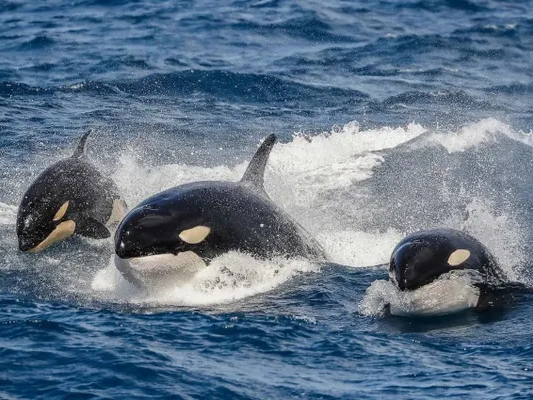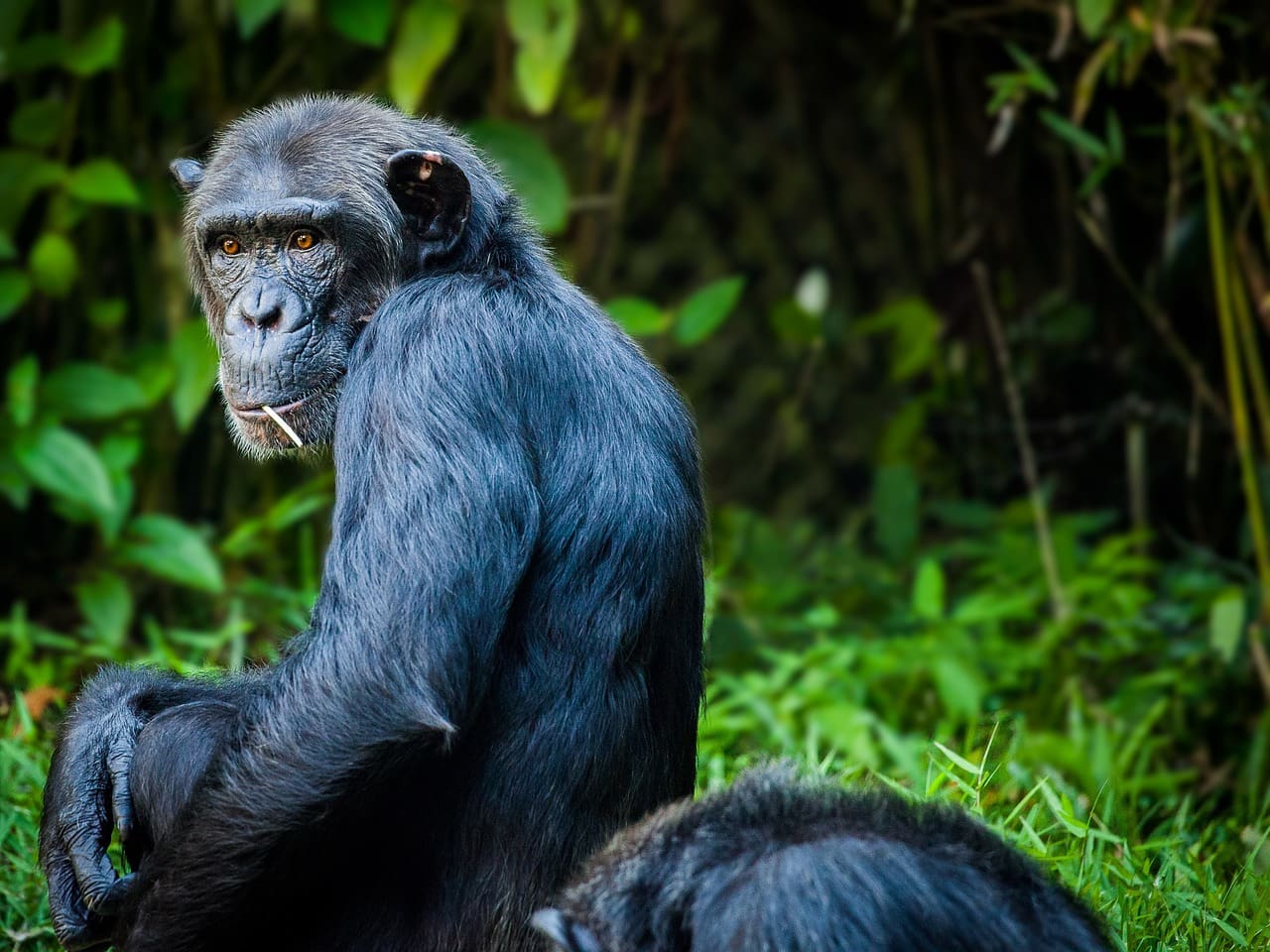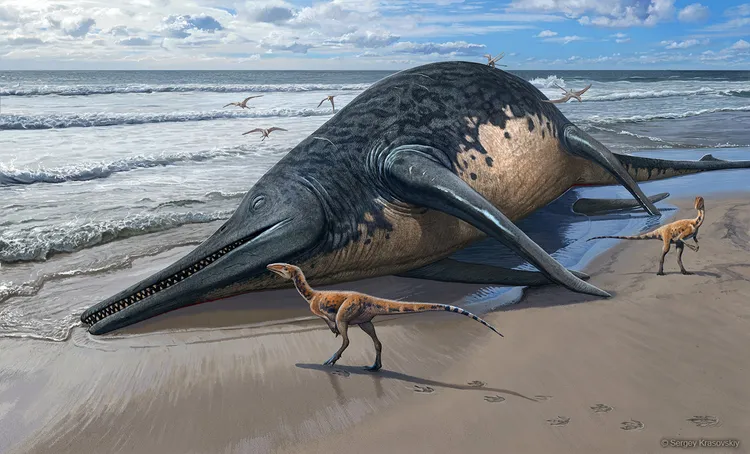Peru has just become the second South American country to promise an end to palm oil driven deforestation by 2021.
This is described as ‘a momentous win’ for wildlife and sustainable agriculture by the National Wildlife Federation (NWF).
Peru has joined Colombia with the environmental pledge, made possible by the NWF, the largest private, non-profit conservation education and advocacy organisation in the United States, with more than six million members and supporters and 52 state and territorial affiliated organisations, Live Kindly reports.
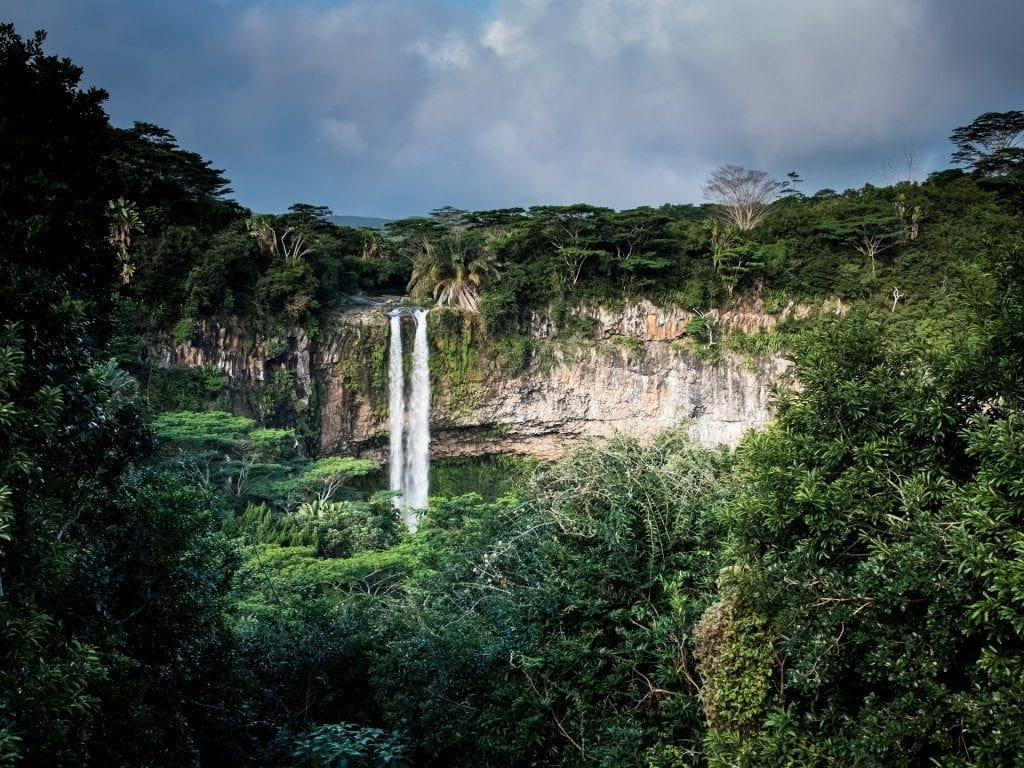
The NFW and Sociedad Peruana de Ecodesarrollo – it’s local partner, worked alongside Peruvian palm oil Producers’ Association JUNAPALMA for two years in an effort to achieve the current agreement.
Kiryssa Kasprzyk, who led the NFW’s work on the agreement, said in a statement:
This commitment is a momentous development for the people of Peru and the global effort to confront climate change. It underscores that we can feed the world without hurting biodiversity or clear-cutting tropical forests.
Palm oil is a vegetable oil extracted from the fruit and the seeds of the oil palm and can be found in at least half of all packaged goods found in UK supermarkets.

Around 66 million tonnes of palm oil are produced every year, according to the Independent. The oil will often be listed under various different names such as kernal, fruit oil, palmate and stearine and is used in goods like bread, cereal, chocolate, shampoo, cosmetics, cleaning products and biofuel to name a few.
However, production of the oil sees forests being burned down to make room for plantations, contributing to climate change and destroying habitats. Last year, Peru lost 140,000 hectares of forest, putting the country in seventh place in terms of forest loss, according to Global Forest Watch.
Deforestation is thought to be responsible for 10 per cent of all global emissions, thanks to greenhouse gases like carbon dioxide being released into the atmosphere when trees are cut down.
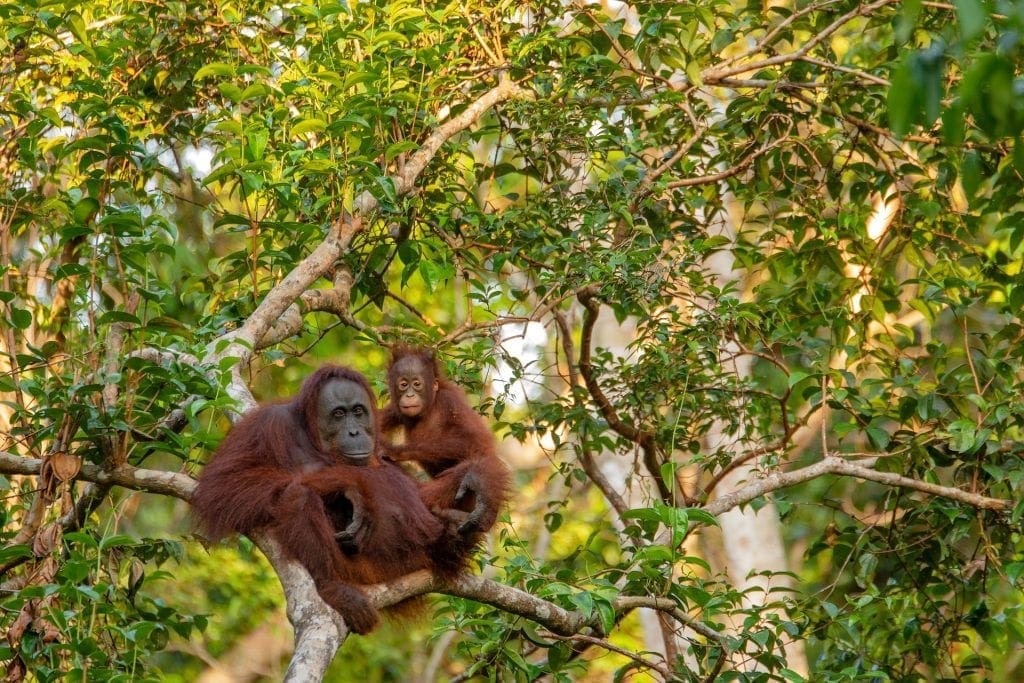
Aside from the effects on climate change, palm oil production has also driven orangutans to the verge of extinction with them now being classified as critically endangered. According to Greenpeace, Orangutan populations in Borneo more than halved between 1999 and 2015.
Peru and Colombia’s commitment is in alignment with the Joint Declaration of Intent, signed by Norway and Germany, and intends to end deforestation by 2021.
It also aligns with a recent climate change report outlining the importance of maintaining forests and sensitive habitats in South and North America in a bid to help fight climate change.
STAY UPDATED
Join our community of keen travellers, wildlife enthusiasts and adventure seekers.
Orange Sahara Dust Cloud Descends Over Athens
April 24, 2024
Orange Dust Haze Over Athens: The Sahara's Impact and What Lies Ahead
As Athenians woke up to an otherworldly scene, a striking orange haze enveloped the cityscape, an eerie reminder of nature's untamed forces. This isn't the first time the skies over Greece have turned shades of Martian orange, but the recent Sahara dust event is among the most severe since 2018.
This phenomenon, resulting from vast clouds of mineral dust carried from the Sahara Desert, casts a surreal glow and a thick blanket over Athens, extending as far north as Thessaloniki.
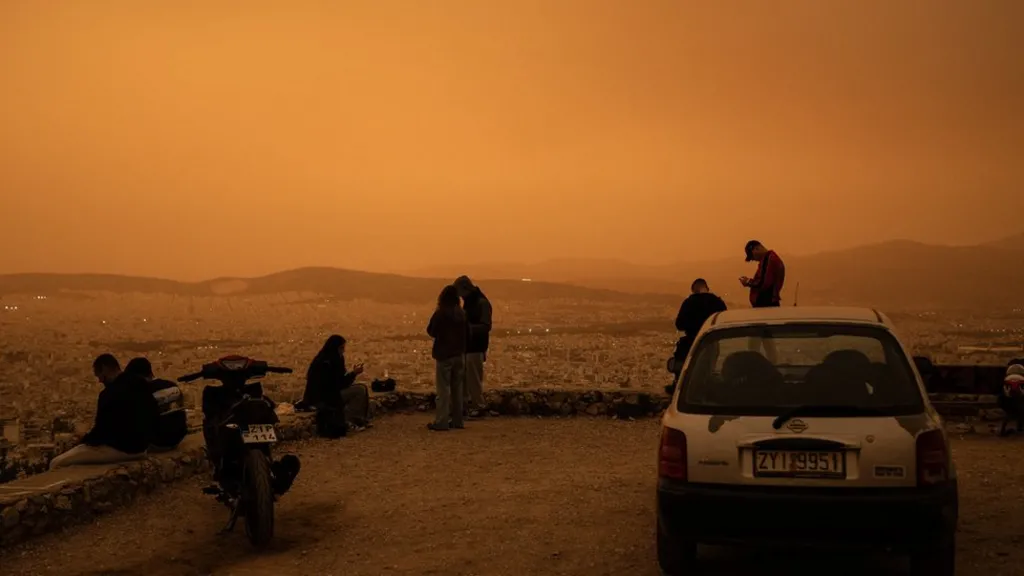
A Persistent and Expansive Issue. The Sahara Desert, an immense landscape of arid expanses, annually releases between 60 to 200 million tonnes of mineral dust into the atmosphere. While much of this dust settles back to the earth's surface relatively quickly, finer particles are swept across continents by upper-level winds.
In this instance, the dust not only shrouded Greece but also affected regions as disparate as Switzerland and southern France in late March and early April. This wide-reaching impact highlights the interconnectedness of environmental phenomena, transcending geographical boundaries.

Atmospheric Conditions and Public Health
The mingling of dust with unusually high temperatures has created stifling conditions in southern Greece. Kostas Lagouvardos, a noted meteorologist, likened the view from a local weather station to the surface of Mars, emphasizing the dramatic alteration in the landscape and atmosphere. The compromised air quality poses significant health risks, particularly for those with respiratory ailments. Greek authorities have advised the public to wear protective masks, limit outdoor activities, and postpone physical exercise until the air clears—a temporary but vital adaptation to the hazardous conditions.
Complicating the environmental challenge are the wildfires that have flared up concurrently. In the past 24 hours alone, the Greek fire service has battled 25 wildfires. One particularly fierce blaze near a naval base on Crete necessitated the evacuation of homes and a kindergarten as temperatures on the island soared above 30°C (86°F). This confluence of dust, heat, and fire underscores the broader climatic vulnerabilities that Greece, like many parts of the world, faces amid changing global weather patterns.
Looking Ahead: Environmental Implications and Actions
The recurring dust episodes and their intensification call for a reevaluation of environmental and health preparedness strategies. Enhancing predictive meteorological models and public health advisories can play pivotal roles in mitigating the impacts of such dust storms. Moreover, understanding the broader implications of these dust clouds on climate change, soil deposition, and even marine ecosystems will be crucial.
As we contemplate the orange haze that temporarily transforms day into dusk, it serves as a vivid, visual reminder of our planet's dynamic and interconnected environmental systems.
The need for increased research, international cooperation, and proactive measures has never been more apparent, ensuring that societies can better anticipate, respond to, and ultimately thrive amidst these challenges. The dust will settle, but the conversation and actions it precipitates must continue to evolve.
‘Whale Bones’ Capturer Earns Underwater Photographer Of The Year
April 24, 2024
In the icy waters beneath Greenland's vast frozen expanses, a spectacle of history and present intertwines, illuminated by the minimal natural light filtering through the thick ice sheet above.
Here, Swedish underwater photographer Alex Dawson captured a scene so compelling it earned him the prestigious title of Underwater Photographer of the Year 2024.
His photograph, titled "Whale Bones," portrays a diver navigating the remnants of a whaling past, a stark reminder of the transient yet impactful intersections between human activity and marine life.
The image features freediver Anna Von Boetticher, a friend and frequent collaborator of Dawson, as she explores the skeletal remains of a minke whale. The setting is haunting and ethereal. Located no more than 7 meters below the ice's surface, the site is relatively accessible, yet the conditions are anything but ordinary. The limited light creates an otherworldly glow around the diver, who, equipped with a torch, appears as an explorer from another planet.
Alex Mustard, chair of the judging panel for the Underwater Photographer of the Year 2024 awards, described the photograph as being shot in "the toughest conditions." He praised the composition for its ability to guide the viewer through the narrative seamlessly, highlighting the "visiting alien" feel that the diver's suit and torch contribute to the scene.
The image not only captures the physical remnants found beneath the ice but also tells a broader story of ecological and historical significance.

Celebrating his victory, Dawson took to Instagram to express his gratitude and honor for receiving the award. His post reflects a deep appreciation for the craft and the profound experiences that underwater photography can afford.
He noted, underscoring the challenges and unique aspects of capturing such a shot:
"This image was submitted in the Wide Angle category with freediving mode,"
Anna Von Boetticher's own reflections on social media add a personal touch to the achievement. She shared her pride in both the recognition of Dawson's work and her role in it, celebrating the collaborative spirit that such projects entail. Her words highlight the partnership and shared dedication required to bring such compelling underwater narratives to the surface.
This win for Dawson is not merely a personal triumph but a resonant moment for the underwater photography community. It underscores the genre's capacity to engage with pressing environmental narratives and to evoke both beauty and contemplation through visual storytelling. The photograph of the whale bones beneath Greenland's ice is a poignant reminder of the delicate balance marine ecosystems must navigate amidst human influence.
As the viewer's eyes traverse the contours of whale bones and the diver's illuminated path, the image of "Whale Bones" invites a meditative pause on the impact of past actions on the present and future marine environments. It serves as both a window and a mirror—showing us the hidden wonders of underwater realms and reflecting our own roles within these narratives.
In exploring these depths, Dawson and Von Boetticher not only capture images but also capture imaginations, prompting a dialogue about conservation, exploration, and the unseen parts of our world.
Deforestation Forces Animals To Eat Infected Bat Poo in Uganda
April 23, 2024
The Unseen Dangers of Deforestation: A Deep Dive into Uganda's Bat Poo Crisis
In the dense canopy of Uganda's Budongo Forest, a strange and potentially dangerous new food source has emerged for the local wildlife: bat guano.
This phenomenon has come about not through natural evolution but as a dire consequence of human activity—specifically, tobacco farming, which has led to a severe depletion of the native flora.
The ramifications of this change are profound, shedding light on the complex interplay between deforestation and emerging infectious diseases.
The Unintended Consequences of Agricultural Practices
Over the last six years, a collaborative research project between the University of Stirling and the University of Wisconsin-Madison has unveiled startling findings about the diet of local wildlife, including chimpanzees, antelopes, and monkeys. Dr. Pawel Fedurek from the Faculty of Natural Sciences at the University of Stirling first observed these animals consuming bat guano, a substance rich in viruses, some of which are related to the infamous SARS-CoV-2.
The guano serves as an "alternative source of crucial minerals" for the animals, according to the study published in the prestigious Nature journal. This shift in dietary source is a direct result of the local palm trees being "harvested to extinction" to facilitate the drying of tobacco leaves, which are then sold to international markets.
The environmental impact of this agricultural practice extends beyond deforestation: it has created a pathway for potential zoonotic virus transmission, highlighting a subtle but devastating aspect of selective deforestation driven by global tobacco demand.
Viral Pathogens: A Hidden Threat in the Forest
Lab analysis of the collected guano revealed 27 viruses, all previously unknown to science, underscoring the vast unknowns that lie within wildlife and their interactions with pathogens.
Prof. Tony Goldberg from the University of Wisconsin-Madison pointed out the novelty of these viruses and the potential dangers they could pose to humans and other animals. "All 27 viruses were new to science," he explained, "so we don't know what effects they might have on humans or other animals. But one virus stood out because it was a relative of a virus everyone knows: SARS coronavirus 2."
The study provides a critical example of how new infections might jump species barriers, a scenario that has become all too familiar with the recent COVID-19 pandemic. The potential for similar future outbreaks is real and alarming.
As Dr. Fedurek noted,
"Our research illustrates how a subtle form of selective deforestation ultimately driven by a global demand for tobacco can expose wildlife, and by extension humans, to viruses residing in bat guano, increasing virus spillover risk."
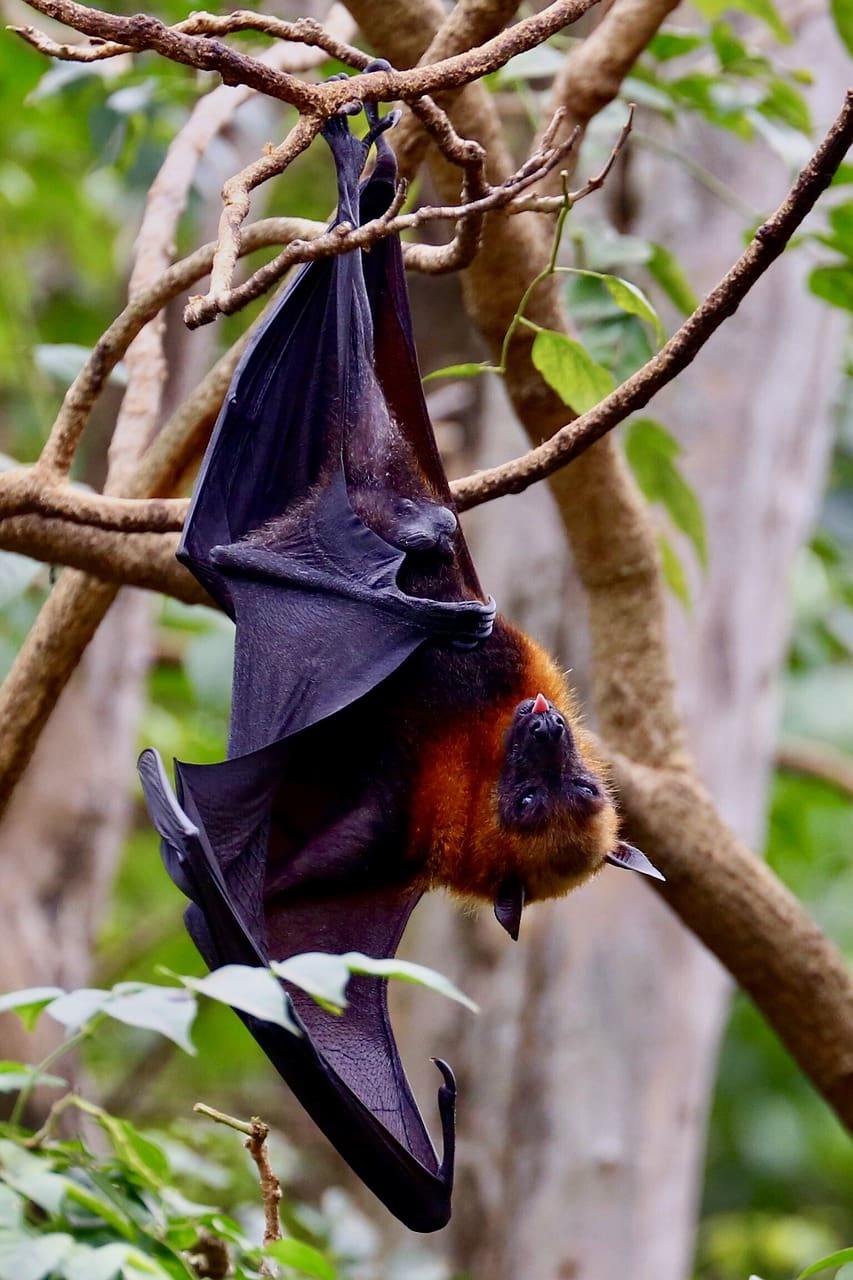
This research not only raises awareness about the unintended consequences of agricultural practices but also stresses the urgent need for interventions to prevent future pandemics. By understanding the triggers and pathways of virus transmission from wildlife to humans, researchers hope to improve our ability to foresee and mitigate the risks of emerging diseases.
The Budongo case study is a stark reminder of the interconnectedness of our environmental, economic, and health systems. It underscores the need for a more sustainable approach to agriculture and land use that considers the long-term health of both the planet and its inhabitants.
As we continue to encroach on natural habitats, the line between wildlife and human disease reservoirs becomes increasingly blurred, necessitating a re-evaluation of our impact on the world around us.
Potential ‘Largest Reptile Ever’ Discovered On Family Beach Day
April 22, 2024
Prehistoric Leviathan: Family's Beach Day Leads to Monumental Ichthyosaur Discovery
The serene shores of Somerset, England, are once again at the center of a paleontological breakthrough. A jaw-dropping find—a jawbone over two meters long, belonging to a previously unknown species of ichthyosaur—has the scientific community buzzing with excitement.
Dubbed Ichthyotitan severnensis or "giant fish lizard of the Severn," this marine behemoth is estimated to have been as colossal as a blue whale, stretching over 25 meters long.
A Family Affair: Discovery by Chance
The tale of this remarkable discovery begins with a family outing that turned into a scientific expedition. Ruby Reynolds, a sharp-eyed 11-year-old, and her father, Justin, stumbled upon the first fragments of the giant bone while fossil hunting on the beach at Blue Anchor in May 2020.
Recognizing the significance of their find, they contacted Dr. Dean Lomax, a leading ichthyosaur expert from the University of Bristol. Dr. Lomax, in turn, reached out to Paul de la Salle, who had discovered a similar giant jawbone in 2016.
Together, they unearthed additional pieces, assembling a prehistoric puzzle that would lead to the identification of a new species.
The Significance of the Find
This discovery is not just about adding a new species to the scientific records; it challenges our understanding of marine life in the Triassic period.
The jawbones of Ichthyotitan provide hard evidence of giant ichthyosaurs swimming in the prehistoric oceans about 202 million years ago, just before a global mass extinction event wiped them from existence.
These giants roamed the seas at a time when dinosaurs were beginning to dominate the land, painting a picture of a world vastly different from our own.
The Science Behind the Bones
The research team, which includes experts from the University of Bristol and the University of Bonn, has employed advanced techniques to analyze the fossils.
Marcello Perillo, a master’s student involved in the study, took core samples that confirmed the ichthyosaur origin of the bones and suggested that the creature was still growing at the time of its death.
This hints at unknown biological strategies that may have allowed these giant creatures to reach such massive sizes.

A Community Effort
The discovery of Ichthyotitan severnensis has been a community effort, highlighting the importance of amateur fossil hunters in the field of paleontology. Ruby Reynolds, now a published young scientist, expressed her excitement and pride in contributing to such a significant scientific discovery.
Her story is reminiscent of Mary Anning, the famous fossil collector who made numerous significant contributions to paleontology in the 19th century.
Exhibiting History
The bones of Ichthyotitan are set to be displayed at the Bristol Museum and Art Gallery, bringing the story of these magnificent creatures to the public.
This exhibition will not only showcase the jawbones but also feature scaled 3D replicas, created by Jimmy Waldron of the DWABA museum in Orlando, Florida, allowing people around the world to marvel at the size and scale of these prehistoric giants.
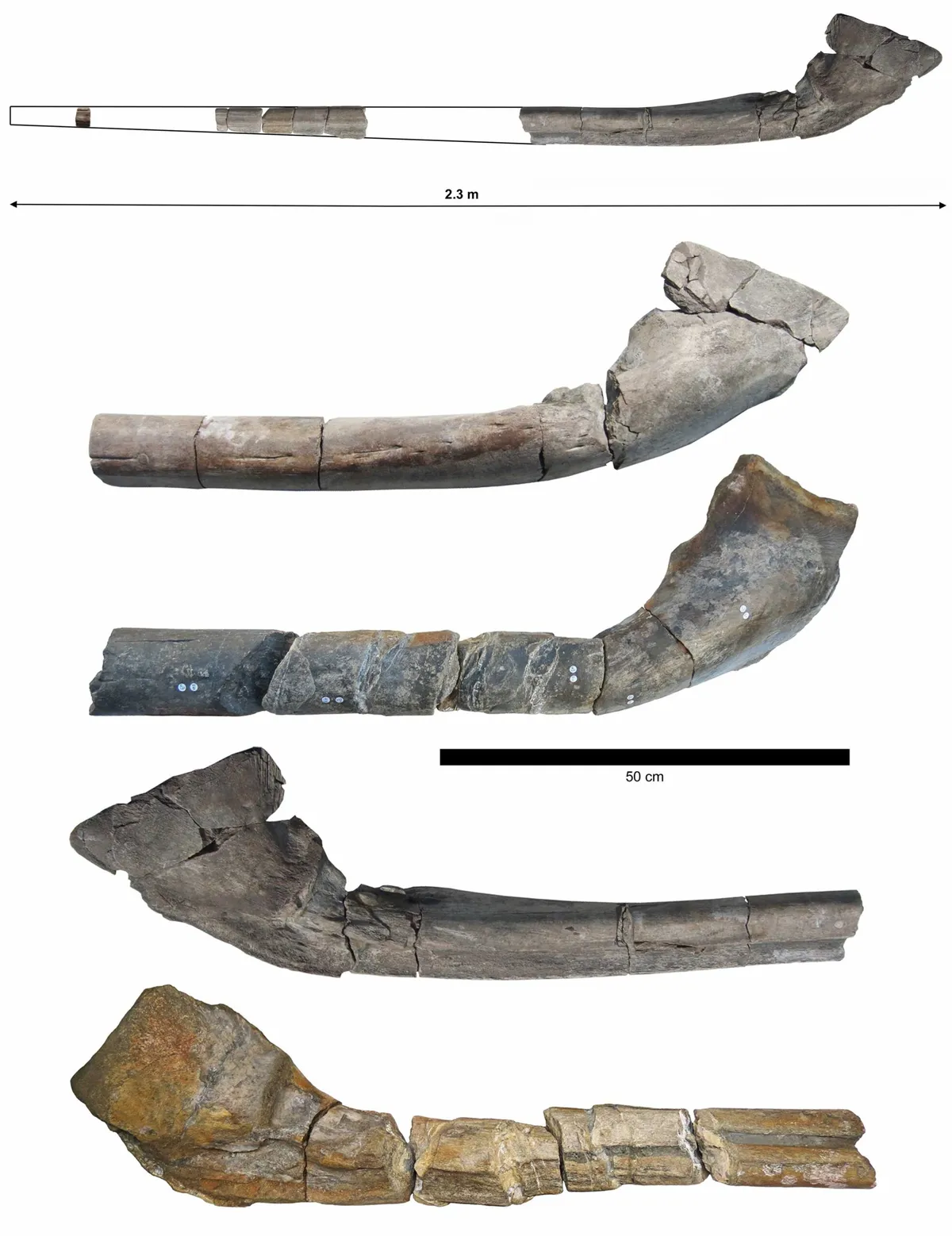
Reflections on a Giant
The story of Ichthyotitan severnensis is more than a tale of discovery. It is a testament to the enduring curiosity of humans, the thrill of discovery, and the never-ending quest to understand our planet's ancient past.
As these giants once dominated the seas, their fossils now beckon us to explore and appreciate the complex history of life on Earth.
It reminds us that each fossil holds a story, a glimpse into an era where the world was a vastly different place, encouraging us to keep looking, learning, and wondering about the great unknown.
Volcano Erupts In Indonesia: More Than 11,000 Evacuated
April 19, 2024
Rising from the Depths: The Volcanic Agitation of Mount Ruang
In the quiet darkness of a Tuesday night in North Sulawesi Province, Indonesia, the earth reminded everyone of its fiery core as Mount Ruang erupted, catapulting ash and smoke over two kilometers into the sky.
This dramatic spectacle marked the beginning of a series of eruptions that would see more than 11,000 residents hastily evacuating under the cloak of uncertainty and ash.
The Awakening Giant
Mount Ruang, a 725-meter colossus, is no stranger to the limelight, having etched its power in the history books with a catastrophic eruption in 1871 that triggered a tsunami. This week’s activity began at 9:45 PM local time, with the volcano asserting its might in a display that lit up the night sky with billowing smoke and cascading lava flows that painted the dark waters a glowing red.
Local authorities, quick to respond, escalated the alert level to four—the highest possible—while expanding the exclusion zone from four kilometers to six. Abdul Muhari, head of the disaster agency’s data communications and information centre, underscored the urgency of the situation, noting that everyone within this newly defined danger zone had to move to safer grounds immediately.
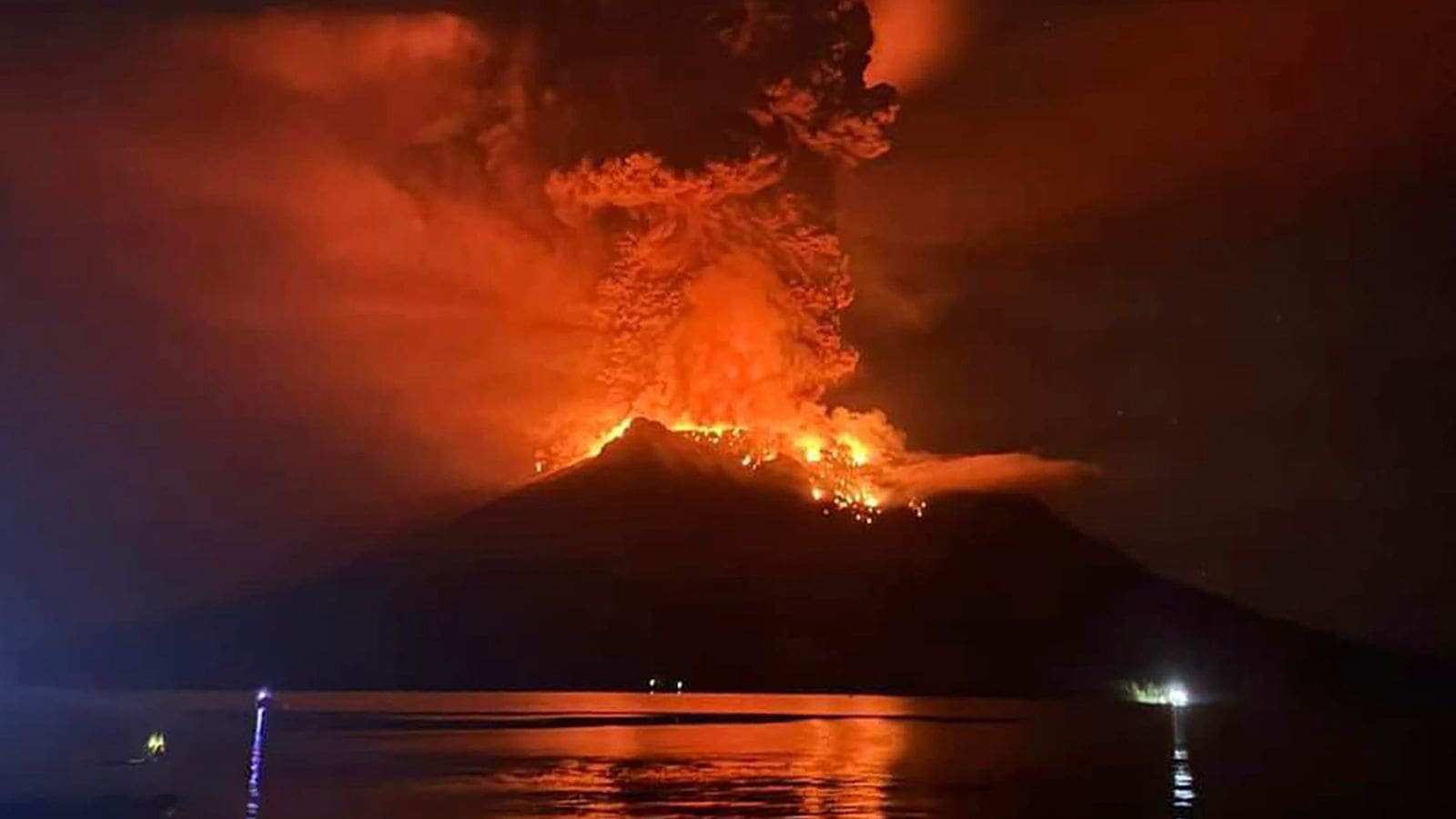
A Community on the Move
The initial exodus saw over 800 individuals relocate to Tagulandang Island, with subsequent eruptions necessitating further evacuations to the provincial capital, Manado.
The logistics of moving thousands in the face of an ongoing natural disaster are daunting. Yet, the community's resilience and the coordinated efforts of local authorities have painted a picture of determination and solidarity.
The Broader Impact
The eruptions have not only disrupted lives but also air travel. The spread of volcanic ash led to the temporary closure of Sam Ratulangi International Airport, a crucial hub with links to China, Singapore, and South Korea. Flights from Kota Kinabalu International Airport in Malaysia also faced significant disruptions, emphasizing the far-reaching impacts of such natural events.
Important Travel Update:
— Malaysia Airlines (@MAS) April 18, 2024
Malaysia Airlines has suspended several flights to/from KL International Airport (KUL) to Sabah and Sarawak today, 18 April 2024 due to the volcanic eruption at Mount Ruang, Indonesia.
Our priority is your safety. We're closely monitoring the situation…
A Geological Hotspot
Indonesia's geographic positioning on the 'Ring of Fire'—a major area in the basin of the Pacific Ocean where many earthquakes and volcanic eruptions occur—makes it a hotspot for seismic and volcanic activity. The country hosts 120 active volcanoes, and the memory of the 2018 Anak Krakatoa eruption, which claimed hundreds of lives, is still fresh.
Reflecting on Nature’s Might
The ongoing situation at Mount Ruang is a stark reminder of the dynamic and sometimes perilous nature of our planet. As scientists and authorities work to monitor and respond to these geological events, the resilience of the affected communities continues to be tested. The eruptions serve as both a spectacle of nature’s raw beauty and a call to respect and prepare for its potential fury.
In the face of such overwhelming natural power, the spirit of the people in North Sulawesi is a testament to human resilience. The coming days will undoubtedly be challenging, but also a chance for collective learning and adaptation in the shadow of one of nature’s most awe-inspiring phenomena.

